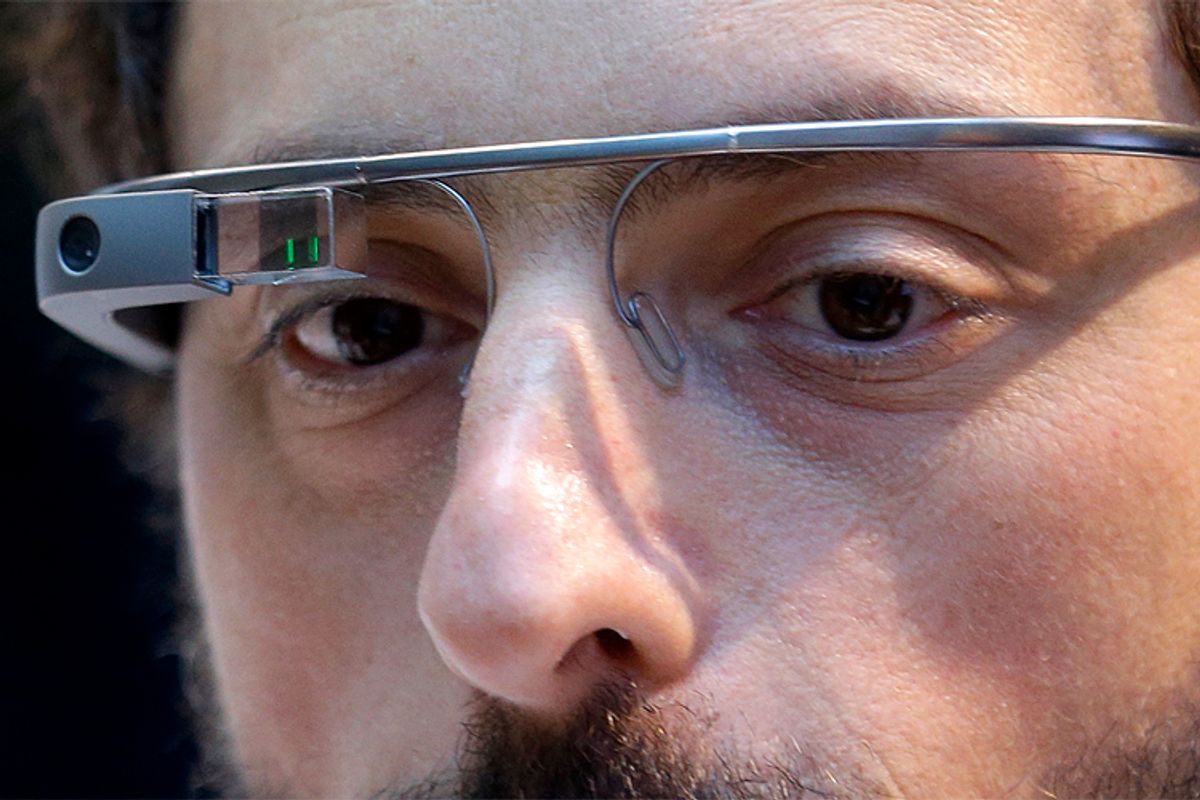"What if Trayvon Martin was wearing Google Glasses?" Intentional or not, the headline on Eric Kuhn's speculative hypothesis at Medium was sure to push buttons. A gross miscarriage of justice sucker punches the nation in its gut, and here's some guy wondering if a $1500 piece of technology beloved by male white tech geek douchebags could have prevented the tragic killing of a poor black kid. Could one be any more wildly offensive?
And yet, there is a still a question worth asking here. Since at least as far back as 1991, when George Holliday recorded the vicious beating of Rodney King on his new video camera, we've understood that the falling cost of technological advances can give some measure of power back to the people. The concept of "excessive force" always comes across more vividly when caught on video. Cops, in particular, don't like being caught in the act of abusing their authority. It is a cliché, now, to see people whip out their phones and start recording at any clash between the powerless and powerful.
The idea that Google Glass, right now, with its high retail price, might offer any protection for the Trayvon Martins of the world is absurd. And even in the case of Rodney King, where horrific video images were broadcast around the world, the police officers ending up getting acquitted. So yeah, there's no magic bullet against racism, injustice, and cold-blooded murder coming from Silicon Valley.
But the cost of Google Glass-capable technology will fall. Six years ago, when the iPhone debuted, no one predicted that fully half of all Americans would be walking around with smartphones in their pockets in 2013. It will be easier and easier and cheaper and cheaper to hit the record button when threatened or when seeing someone else threatened.
Will that make any meaningful difference in states that pass laws purposefully designed to legitimize quasi-vigilante behavior? The evidence is scant that Silicon Valley innovation has done much, if anything at all, to ameliorate the inequities stitched into society by class differences and race. Even in the case of Rodney King, defense lawyers used a frame-by-frame analysis of the same video that most people found shocking to support their (ultimately successful) argument that the officers were justified in their use of force. Your own personal surveillance video could just as easily be used against you by a sharp lawyer. If you are a poor black kid, the system is stacked against you.
But we're already living in a society where we are being watched and recorded and surveilled by others all the time. We might as well be watching them back. And we clearly think there is value in doing so, or we wouldn't be so quick to click record on our phones. Whatever we use in the future might not be called Google Glass, but there's little doubt cheaper, easier-to-use, ubiquitously-available video recording technology will continue to spread. It's not insane to think that someone's life might be saved by it.

Shares